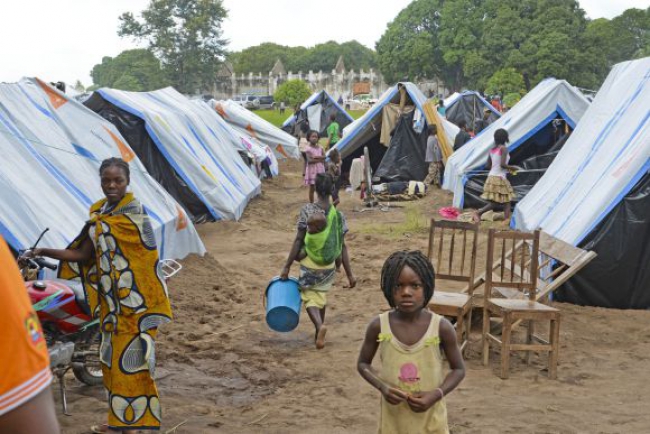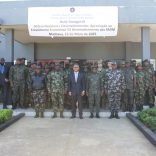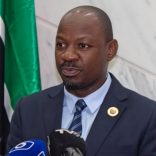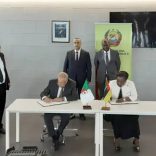EU Military Assistance Mission marks presence at the launch of Mozambique Armed Forces Week
Mozambican refugees in Malawi now number 11,000

An estimated 11,000 Mozambicans have now fled the military clashes in the centre of Mozambique for the makeshift refugee camp in Kapise in south-western Malawi, the official responsible for the camp told Lusa yesterday.
Contacted by phone from Lisbon, Monique Ekoko said that by Monday, 8,776 Mozambicans had been registered, and estimated that about 2,250 others more were waiting to be processed.
“The Mozambicans who are asking for asylum claim to have been being persecuted by government troops in Tete who accuse them of hosting Renamo soldiers and burn their houses.“
According to Ekoko, this is the story told by all the Mozambicans who come to Kapise from Tete, crossing the border without going through the official border posts.
Kapise is only six kilometres from the Mozambique border. All its residents are Mozambican.
“They began to arrive in small groups in June 2015. In December 2015, the number rose dramatically. Since the end of February, we have been receiving about 300 Mozambicans a week,” she said.
At the root of the problem is the political and military crisis between Filipe Nyusi’s government and Afonso Dhlakama’s Renamo, with the opposition party claiming victory in the general elections 2014 in six provinces of the country, including Tete.
The last few weeks have been marked by mutual accusations of armed attacks, kidnappings and assassinations for political reasons and also by ambushes in Sofala province on civilian vehicles attributed to Renamo.
“They come with everything they own, often just the few things they managed to save from their destroyed houses. The government forces consider them Renamo supporters – at least that is what they have told us. But we still cannot confirm any of this,” Ekoko said.
Ekoko says that the local authorities have provided land to house them at this stage, and that Lilongwe is committed to improving conditions.
On March 1, the governor of Tete, Paul Auade, denied the existence of any Mozambican refugees in Malawi, arguing that most people in Kapise are Malawians passing themselves off as displaced by drought.
Auade was contradicted two days later by the Minister of Foreign Affairs and Cooperation, Oldemiro Baloi, who confirmed in parliament the existence of Mozambicans i in Malawi and said the government’s priority was to ensure they got humanitarian assistance, although without admitting their refugee status.
“Refugee status is not automatic. The award of refugee status requires an application for asylum, but the humanitarian component nevertheless overrides this issue”, Baloi said.













Leave a Reply
Be the First to Comment!
You must be logged in to post a comment.
You must be logged in to post a comment.